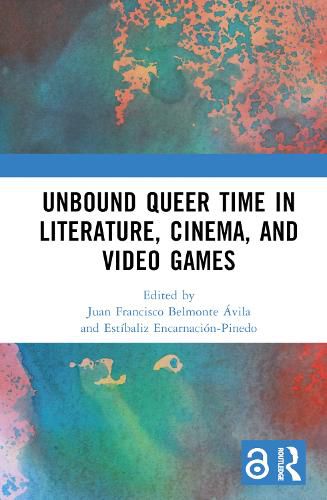Readings Newsletter
Become a Readings Member to make your shopping experience even easier.
Sign in or sign up for free!
You’re not far away from qualifying for FREE standard shipping within Australia
You’ve qualified for FREE standard shipping within Australia
The cart is loading…






Unbound Queer Time in Literature, Cinema, and Video Games investigates the potential of queer conceptions of time to unbind forms of understanding identities. In doing so, it recognizes the power of time to determine us but chooses to queer time and turn it into an ally of unbound forms of understanding identities.
Through the analysis of different media-literature, cinema, and video games-the chapters revolve around three key ideas: that there are inherently queer styles of using and dealing with time and temporality in culture; that the critical rediscovery of canonical texts and the analysis of largely ignored queer texts and authors allow for a better understanding of queer identities; and, finally, that normative conceptions of time can-and should-be challenged through critical tools that reconceptualize notions of the self around time.
This volume will be of interest to postgraduate students and researchers working close to areas such as queer and gender studies, media and cinema studies, cultural studies, literary theory, comparative literature, game studies, and art history.
$9.00 standard shipping within Australia
FREE standard shipping within Australia for orders over $100.00
Express & International shipping calculated at checkout
Unbound Queer Time in Literature, Cinema, and Video Games investigates the potential of queer conceptions of time to unbind forms of understanding identities. In doing so, it recognizes the power of time to determine us but chooses to queer time and turn it into an ally of unbound forms of understanding identities.
Through the analysis of different media-literature, cinema, and video games-the chapters revolve around three key ideas: that there are inherently queer styles of using and dealing with time and temporality in culture; that the critical rediscovery of canonical texts and the analysis of largely ignored queer texts and authors allow for a better understanding of queer identities; and, finally, that normative conceptions of time can-and should-be challenged through critical tools that reconceptualize notions of the self around time.
This volume will be of interest to postgraduate students and researchers working close to areas such as queer and gender studies, media and cinema studies, cultural studies, literary theory, comparative literature, game studies, and art history.